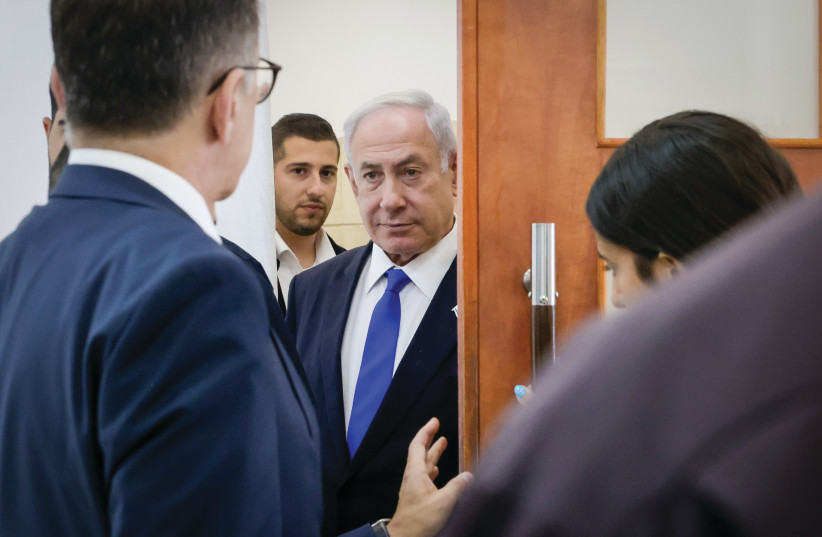A new poll conducted for Maariv on Wednesday showed that Benny Gantz's National Unity Party had weakened while both Yair Lapid's Yesh Atid and Benjamin Netanyahu's Likud strengthened.
The poll conducted by Dr. Menachem Lazar from Panel4All, showed an overall trend of National Unity reducing from 32 seats to 28 seats. This lost support is going to both Yesh Atid and Likud who gained seats - from 16 to 19 and 25 to 27 respectively.
The intensified debate over the renewed judicial reform may be the cause of this shift as people begin to drift toward the two parties most associated with the opposing sides.
This may be an indication that the debate has become increasingly polarized, National Unity is most associated with a compromising stance on judicial reform.
All other parties have remained steady holding on to their vote share, with any changes being chalked up to statistical fluctuations in the in surveys.

Plea deal for Netanyahu
On the question of Prime Minister Netanyahu's ongoing trial 38% of general public support a plea deal for the Prime Minister, while 41% oppose it.
Those in favor of the plea deal are roughly equal proportions for both the opposition and coalition; however, those against a plea deal showed a bigger discrepancy. 34% of coalition voters oppose a plea deal while 47% oppose for the opposition.
A much larger discrepancy in those who didn't know with 26% of the coalition voters but only 13% of the opposition voters saying they didn't know.
Finally, Labor and Balad parties both would fail to make the Knesset, receiving less than the threshold of 3.25%.
